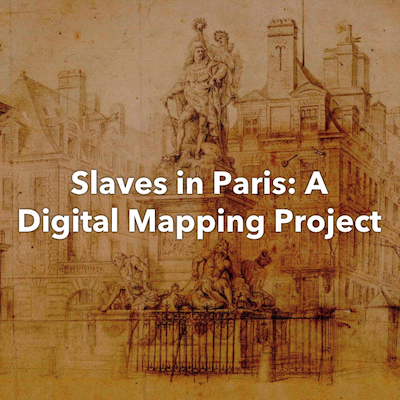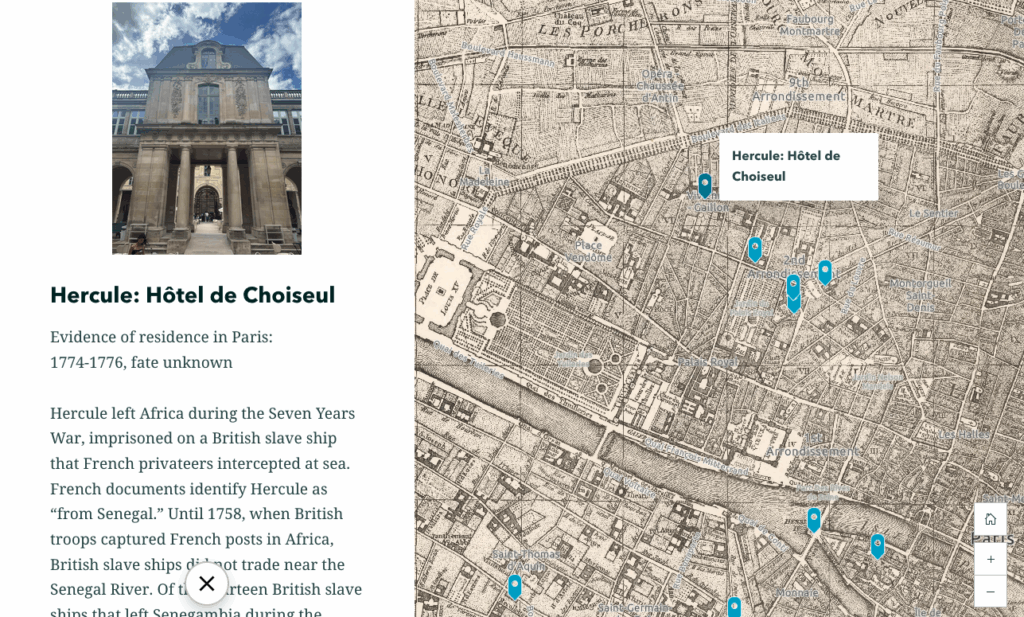Meredith Martin (NYU) and Hannah Williams (QMUL)
We are excited to announce the launch of Slaves in Paris: A Digital Mapping Project, a collaboration between historian Miranda Spieler and Colonial Networks. This new website aims to uncover and visualize the drastically overlooked histories of enslaved people within the heart of France’s capital in the eighteenth-century.
Uncovering Hidden Histories
“Slaves in Paris” utilizes archival research to identify and map the presence of enslaved people in Paris during the 1700s. By plotting these individuals’ locations and associated historical data, the project provides an interactive platform for exploring the complexities of slavery in the French capital. This initiative challenges the traditional narratives that confine slavery to colonial territories, highlighting its pervasive impact within metropolitan centers.
Collaborative Efforts
This site takes its inspiration and name from Miranda’s book, Slaves in Paris: Hidden Lives and Fugitive Histories (Harvard University Press, 2025), which pieces together the biographies of enslaved and formerly enslaved people and develops an alternative picture of eighteenth-century Paris, capital of the Enlightenment, through the prism of their experiences. In terms of its functionality and design, the site is modelled on the Colonial Networks counter-mapping project that we ran with students at NYU – Art, Enslavement, and Resistance in Cap-Français – which uses ArcGIS StoryMaps.
Explore the Project
We invite scholars, students, and the public to explore the “Slaves in Paris” digital map and accompanying resources. The platform offers a unique opportunity to engage with the spatial and human dimensions of slavery in Paris, fostering a deeper understanding of its historical context and legacy.
Visit the project at slavesinparis.org to learn more and explore the interactive map.
Cite this post as: Meredith Martin and Hannah Williams, “Mapping Slavery in the Metropole: Launch of ‘Slaves in Paris: A Digital Mapping Project’” Colonial Networks (July 2025), https://www.colonialnetworks.org/?p=861.



